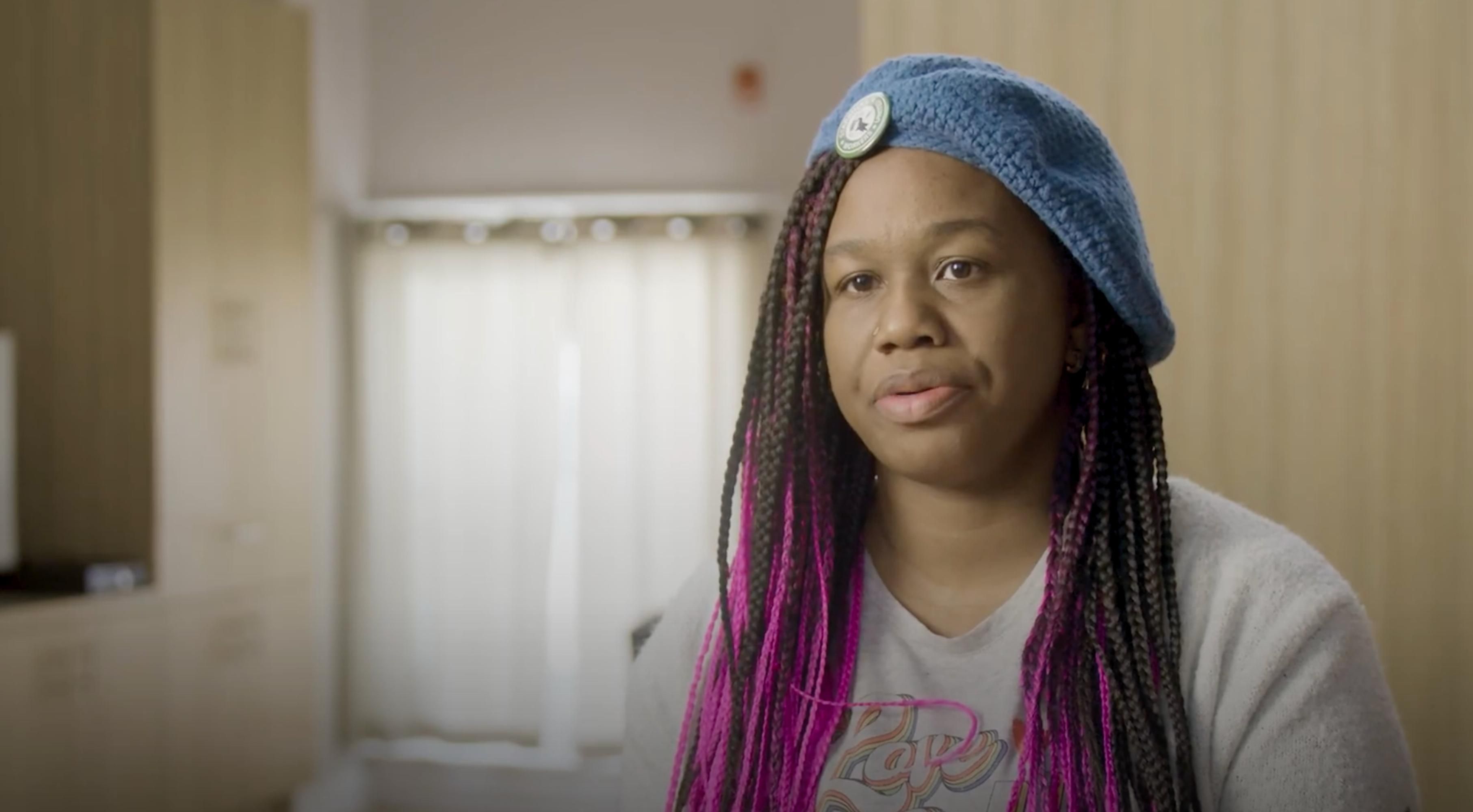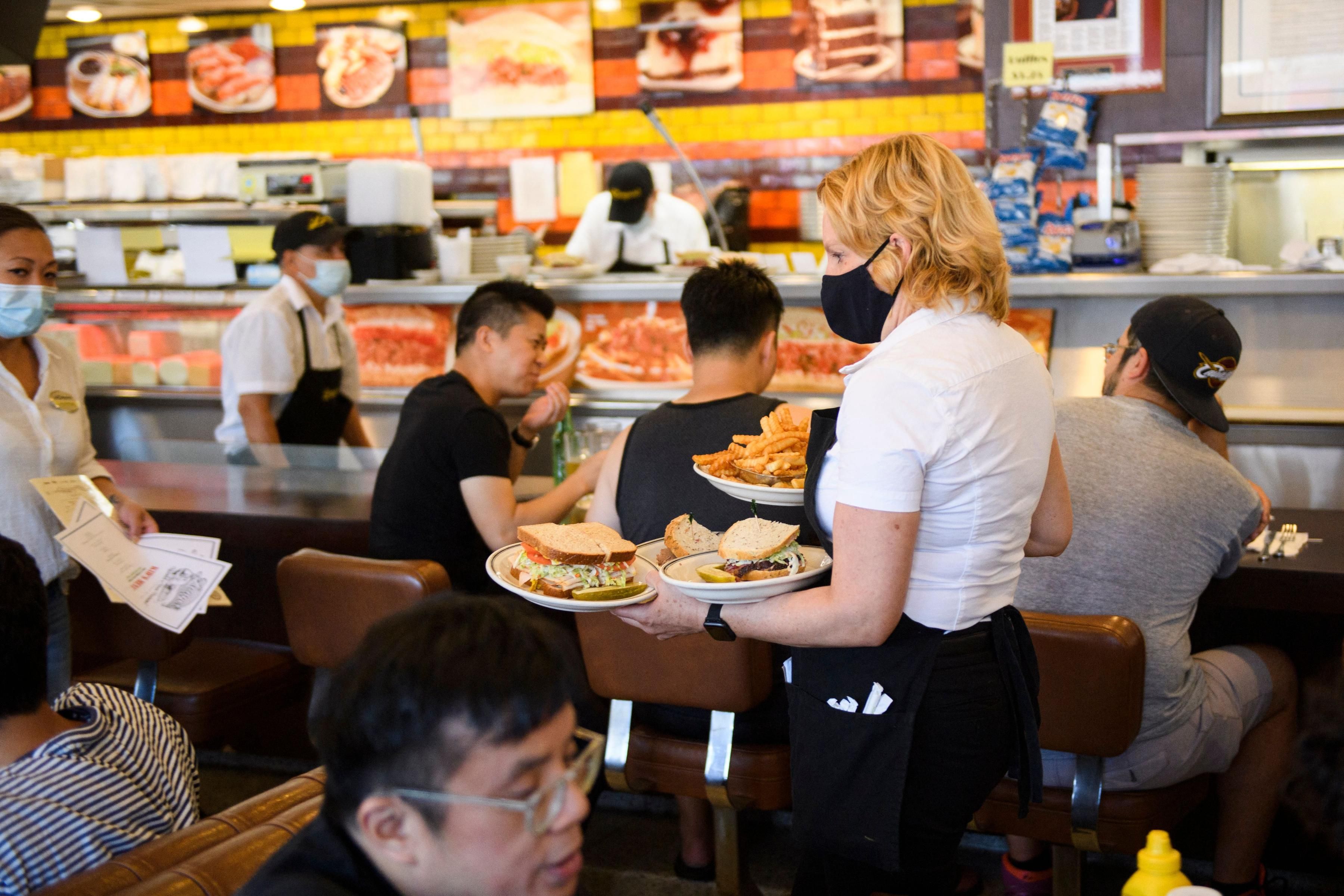Amanda Connolly - Yesterday
Prime Minister Justin Trudeau says "everything" is on the table when it comes to ending the blockades paralyzing cross-border trade at multiple locations, and which remain encamped outside Parliament Hill.
And he urged anyone still participating in the convoys, which are demanding an end to COVID-19 public health measures, to go home or face "severe" consequences.
“Unfortunately, we are concerned about violence, so we’re taking every precaution," he said.
“It’s time to go home – especially if you have kids with you.”
For two weeks, members of a convoy that has claimed to represent Canadian truckers have blockaded the streets of downtown Ottawa, frequently blaring air horns at all hours of the day and night until a 10-day court injunction ordered them to stop the noise.
Federal, provincial and municipal officials, however, have been clear over recent days: the blockades and activities of the convoy are now "illegal" and "unlawful," and must end.
Read more:
Premier Doug Ford declares state of emergency amid protests at land border and in Ottawa
Ottawa has asked both the provincial and federal governments for up to 1,700 extra officers to keep the protests in the city in check, with Ottawa Police Chief Peter Sloly consistently saying Friday that more resources are needed.
Officers in the city have given up off days, are working 12-hour shifts and are "bone-tired," Sloly said.
However, Trudeau told reporters that he doesn't "accept the contention that the city of Ottawa has exhausted its tools and resources," noting that resources have been given by the Ontario Provincial Police (OPP) and the RCMP.
Hundreds of additional officers from the RCMP and other municipal police forces have been deployed to Ottawa.
Read more:
Online fundraising for Ottawa protesters ‘facilitating’ crime, Ottawa police argue in court
In response, Ottawa police board chair Diane Deans said Trudeau's comments were "unfair."
"The federal government have been late to recognizing this is a national crisis," she said.
"I think they are getting up to speed now, but I don’t think suggesting that the Ottawa Police Service has enough resources right now is what he should be doing."
Ontario declared a state of emergency on Friday that allows higher fines and penalties for infractions, but Sloly said without extra resources they will still be difficult to apply.
The blockade at Ambassador Bridge has heightened the pressure on Canadian governments to act.
The bridge is a vital trade route between Canada and the U.S., and both Michigan Gov. Gretchen Whitmer and U.S. President Joe Biden have raised concerns about the economic impacts in recent days.
Video: Trucker protests: Psaki says Biden ‘expressed concern’ to Trudeau about how blockades are impacting U.S.
Trudeau said on Friday that allowing the blockades to continue is not an option.
“The border cannot and will not remain closed," he said, and described the decision earlier in the day by Ontario Premier Doug Ford to declare a state of emergency as "responsible and necessary."
“Everything is on the table because this unlawful activity has to end and it will end," Trudeau said.
He added that people should expect to see police applying tougher enforcement of the laws "in a predictable, progressive approach," and that the hope remains that people will leave peacefully.
"Using military forces against civilian populations in Canada or any other democracy is something to avoid having to do at all costs," he said.
"We are a long way from ever having to call in the military, although of course we have to be ready for any eventuality. But it is not something we are seriously contemplating at this time."
For two weeks, since the beginning of the blockade in Ottawa, Trudeau has faced questions about the potential for military intervention to remove the convoy members who have barricaded city streets with big rigs and other vehicles, refusing to move until public health measures are lifted.
While the Canadian Forces can be deployed at home, doing so is extremely rare.
Trudeau's father, the former prime minister Pierre Elliott Trudeau, did so under a piece of legislation that no longer exists -- the War Measures Act -- in response to a series of terrorist attacks by the Front de libération du Québec (FLQ) in what is now known as the October Crisis.
It was during that crisis that the infamous quote by the elder Trudeau emerged.
Asked how far he was willing to go in enforcing civil order, Trudeau senior answered: "Just watch me."
The most recent case of the military being deployed against civilians happened in 1990 during the Oka Crisis, and came at the request of the Quebec premier at the time.
On Friday, Trudeau was asked whether his father's experience with backlash over using the War Measures Act has shaped his own willingness to deploy the military in response to the current blockades.
"My values are deeply informed by the way I've been brought up," Trudeau answered.
"But every situation is different."

Trudeau says almost half of protesters' funds from U.S., as they turn to Bitcoin
The Canadian Press
OTTAWA — Prime Minister Justin Trudeau says about half of the money being raised for protesters blockading Parliament Hill and several border crossings is coming from the United States, but an expert says attempting to stop the flow of cash is like playing a game of whack-a-mole.
An order recently approved by an Ontario court to freeze millions raised through GiveSendGo will be effective at least temporarily in stopping those funds flowing into organizers' hands, said anti-money laundering expert Matthew McGuire.
The order, obtained by the provincial government, prohibits not only the fundraising platform and organizers, but third-party payment processors and financial institutions, from disposing of or dealing with the millions raised.
"The prohibition that really matters is the prohibition against Canadian financial institutions and payment processors dealing with the donations themselves. And so that can lock them in place here," McGuire said.
So far, around US$8.8 million has been raised through the GiveSendGo campaign page, a Christian fundraising platform, and more than $700,000 has rolled in through another page on the website called "Adopt-a-Trucker."
McGuire said the order serves as a notice to institutions like banks that if "you deal with funds related to this subject … you do so at your own peril."
In an affidavit filed along with Ontario's application, Ottawa Police Service detective Chris Rhone outlines how he believes the money raised through these campaigns is offence-related property.
The officer goes on to say the donations "are facilitating the indictable offence of mischief which has been committed, is being committed, and is intended to be committed for so long as there are funds available to keep protesters and their trucks in Ottawa."
The campaigns were quickly put together last week after GoFundMe cancelled an earlier fundraiser that had gathered more than $10 million. The website said it had determined the protest in Ottawa had turned into an "occupation."
Local police and leaders had raised concerns about the crowdfunded cash given how many of the hundreds of the trucks and protesters that rolled into the nation's capital had refused to leave, clogging up streets and sidewalks and resulting in nearby businesses shutting their doors.
Two weeks after their initial arrival, some trucks have left Parliament Hill, but many others haven't budged. Drivers continue to honk their horns, albeit more sporadically, given a 10-day court injunction in place to prevent the incessant honking that residents heard for days.
McGuire said nothing can prevent another campaign from popping up, which would present the same challenge for governments and police.
It's also no wonder convoy organizers are turning to cryptocurrency including Bitcoin to generate funds because it's decentralized, he said.
"You can't serve an order on the Bitcoin system as a whole. There's nobody there to take that instruction."
Earlier in the week, convoy organizers touted Bitcoin as a way for supporters to ensure the protests are sustained, characterizing it as offering financial freedom.
In his affidavit, Rhone references how organizers "are already transitioning from traditional currency fundraising to Bitcoin fundraising" because they feel Bitcoin cannot be confiscated.
McGuire said there are many ways for protesters to use cryptocurrency, including by changing it into other value.
"It's not hard to turn Bitcoin into a gift card," he said. "It's not hard to load it onto a prepaid card and use it like a regular Visa."
Trudeau said Friday that he spoke with U.S. President Joe Biden that morning about the influence of foreign money in funding the "illegal activity" on Parliament Hill and blockades at several border crossings.
"We see that almost half of the funding through certain portals that is flowing to the barricaders here in Canada is coming from the United States," he told reporters.
"Canadian banks are monitoring financial activity very closely and taking action as necessary."
This report by The Canadian Press was first published Feb. 11, 2022.
Stephanie Taylor, The Canadian Press
















